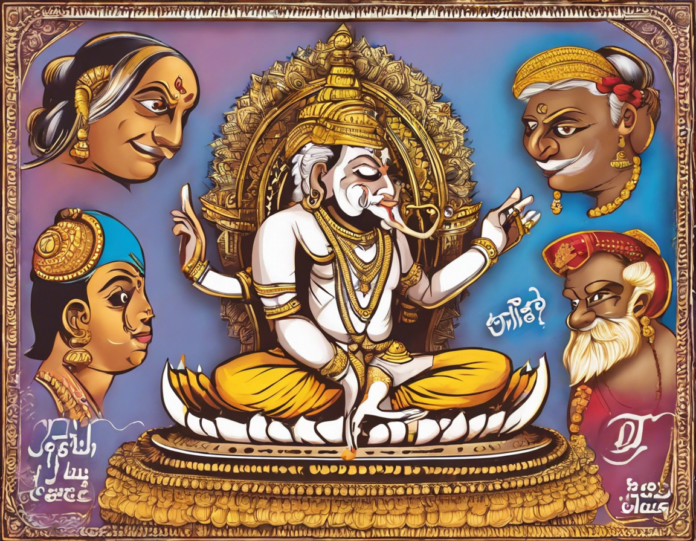Riddles have been a part of human culture for centuries, challenging our minds and making us think outside the box. Tamil riddles, in particular, have a rich tradition and are full of linguistic and cultural nuances that make them both fun and challenging. In this article, we will explore 10 mind-boggling Tamil riddles that will test your wits and push your cognitive limits.
Understanding Tamil Riddles
Tamil riddles, known as “Pattimandram” in Tamil culture, are often used in literary gatherings, social events, and even educational settings to entertain and engage participants. These riddles are crafted with clever wordplay, metaphors, and cultural references that require lateral thinking and a deep understanding of the Tamil language.
1. கணைக் கற்றவன் சொல்லும் என் வழி, தொடர்ந்தால் நான் கண்டன: What am I?
Hint: This riddle plays on the dual meanings of the word “கண்” (eye) and “கண்” (jewel).
2. எருமைக்கும் என் மயிரில் உள்ளார், யார் என் இடுகைக்கு பேசும் சந்தோஷம்? What am I?
Hint: This riddle uses the concept of personification to create a playful scenario.
3. கிச்சந் தையில் குழிக்குக்கு மோதிக்கிறேன், அவள் ரெண்டு கால்களில் முதல் கால் முதல் உள்ளது. Who am I?
Hint: This riddle uses imagery and action to describe a common household item.
4. சீனிக் கூத்தில் குழி உள்ளது, அந்தக் குழி உள்ளடங்கி உள்ளது. What am I?
Hint: This riddle relies on sensory perception and a common object found in the kitchen.
5. கீழ்க்கு வந்து கொள்வது என் அச்சம், மேல்க்கு செல்லும் போது அது ஒட்டுமொட்டுவிடுமல். What am I?
Hint: This riddle describes an object’s behavior in a playful manner.
6. மலைக்கு உலக நலம், உலகக்கு மழை நலம். What am I?
Hint: This riddle juxtaposes the benefits of two natural elements.
7. பெல்லாள் பயந்த பசம், காலை உசண்டு முடிகும் இனிபம். What am I?
Hint: This riddle uses sensory imagery to describe a common morning habit.
8. நெல்லுந்தண்ணோர் பூமி நீ சிறுதானால் நீ மெர்சன் என வேண்டாம். What am I?
Hint: This riddle plays on the concept of perspective and self-worth.
9. பாலுபோன் பொய் செய்யத்தில் கல்லுவுத்தர் தெரியும். What am I?
Hint: This riddle utilizes a proverbial expression to create a puzzle.
10. நெய்க்கட்டி நூல், குலு கை மடிப்பில் உள்ளாய், அதனின் வயிற்றில் உள்ளது ஒரு பெட்டி. What am I?
Hint: This riddle describes a common household item using symbolic language.
FAQs about Tamil Riddles
1. What is the significance of Tamil riddles in the language and culture?
Tamil riddles are not only a form of entertainment but also serve as a tool for language learning, cognitive development, and preservation of cultural heritage. They promote critical thinking and creativity among individuals.
2. How can one improve at solving Tamil riddles?
Improving at solving Tamil riddles requires practice, familiarity with Tamil language nuances, and exposure to a variety of riddles. Reading Tamil literature, engaging with Tamil-speaking communities, and participating in riddle-solving activities can be beneficial.
3. Are there different types of Tamil riddles based on themes?
Yes, Tamil riddles can be categorized based on themes such as nature, animals, household items, proverbs, and more. Each theme offers unique challenges and insights into Tamil culture and language.
4. What role do Tamil riddles play in oral storytelling traditions?
Tamil riddles are often embedded within oral storytelling traditions to engage listeners, convey moral lessons, and showcase linguistic creativity. They add an interactive and dynamic element to storytelling sessions.
5. Can non-Tamil speakers enjoy and appreciate Tamil riddles?
While a deep understanding of the Tamil language and culture can enhance the appreciation of Tamil riddles, their playful and metaphorical nature can still be enjoyed by non-Tamil speakers. Translations and explanations can help bridge the linguistic gap.
Exploring Tamil riddles not only provides a mental workout but also offers insights into the rich tapestry of Tamil language and culture. So why not challenge yourself with these 10 mind-boggling Tamil riddles and unravel the mysteries hidden within their poetic expressions?









